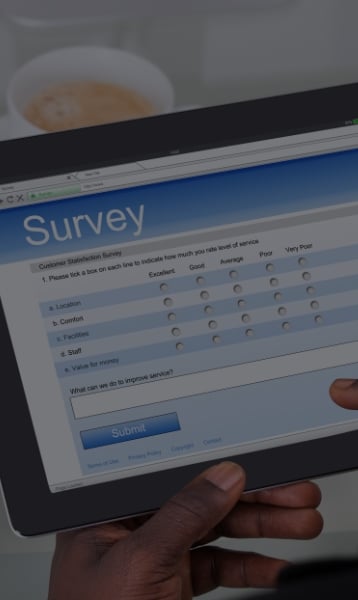The benchmarking portal gives you access to all reports available for STD, LTD, FML & WC.
Lack of Time, Limited Interest in Offerings Cited as Top Reasons Employees Don’t Participate in Employer Wellness Programs, According to Integrated Benefits Institute Analysis


Jennifer Santisi
Most employers say they offer health and wellness programs, but only half of employees surveyed say they are aware of what’s offered.
Over the past couple of years, companies have invested heavily in workplace health and wellness programs (HWPs). According to health and productivity research non-profit Integrated Benefit Institute (IBI), there is a significant disconnect between program availability and employee utilization.
IBI surveyed over 900 employers and employees to understand their perspectives on HWPs. Findings indicate that employers generally believe in the efficacy and importance of these programs. However, employees express lower perceived value and participation rates, highlighting a mismatch between the programs and employee needs.
Half (49.8%) of employees say they are aware of their employers’ health and wellness programs, while 64% of employees who are aware of the programs utilize them. The top reasons for employee participation include improving physical health (65.2%), enhancing mental well-being (54.7%), and managing stress (50.9%).
Most employers (86.2%) indicated they offer health and wellness programs, showing a strong commitment to their employees' well-being. Over 80% of these organizations consider employee health very important and over 65% view their company as 'very responsible' or 'extremely responsible' towards employee health and wellness.
Mental health programs are the most common, offered by 68% of employers, followed by preventive health screenings, financial wellness programs and physical activity programs. However, employers report that they struggle with low participation in most program types - including 63% reporting low participation in weight loss, nutrition (50%), and mental health (56%). Employees’ major barriers to participation include lack of time (60.9%), limited interest in offerings (36.9%), and lack of awareness/access (34.2%).
The disparities between employer and employee responses illustrate that employers overestimate some aspects regarding the use and satisfaction of wellness programs. Employers tend to overestimate high satisfaction levels, anticipating that nearly half of employees would be very satisfied with the programs, while only a quarter of employees report such high satisfaction levels.
“Health and wellness programs are a core component of many employer-sponsored benefit programs,” shared Jim Huffman, President & CEO of IBI. “Much has been invested to help mitigate the risks of preventable medical conditions, yet the programs are not fully utilized by eligible employees. This valuable research sheds light on some of the underlying challenges that stand in the way of full engagement.”
Overall, employers generally have a more positive perception of their employees' health in all four categories – physical, mental, financial, and social- compared to the assessment of the employees we surveyed. The disconnect, particularly in financial and mental health aspects, suggests that employers may need to reassess and align their strategies to better support their employees' actual health concerns and needs.
What can employers do?
"As organizations invest significantly in health and wellness programs, it is crucial to bridge the gap between availability and actual employee participation. Our research highlights that tailored communication strategies, leadership support, and culturally sensitive initiatives are key to fostering a healthier, more engaged workforce," said IBI Researcher Sera-Leigh Ghouralal, PhD. By implementing these evidence-based strategies, organizations can significantly enhance HWP participation rates while fostering a healthier, more engaged, and productive workforce.
###
About Integrated Benefits Institute
The Integrated Benefit Institute’s independent research, industry-leading tools and data resources help companies link health-related programs to the outcomes that maximize the contributions of people to productivity and business performance. Founded in 1995, IBI is a national nonprofit research organization and business association serving more than 1,600 employer and supplier members. For additional information, please visit www.ibiweb.org and follow us on Twitter and LinkedIn.
- December 2024 (1)
- November 2024 (1)
- July 2024 (1)
- June 2024 (1)
- March 2024 (1)
- February 2024 (1)
- January 2024 (1)
- December 2023 (1)
- November 2023 (1)
- August 2023 (1)
- July 2023 (1)
- May 2023 (2)
- February 2023 (2)
- January 2023 (2)
- November 2022 (1)
- October 2022 (1)
- September 2022 (1)
- March 2022 (1)
- February 2022 (1)
- January 2022 (1)
- December 2021 (1)
- September 2021 (1)
- April 2021 (2)
- December 2020 (1)
- October 2020 (1)
- September 2020 (2)
- August 2020 (2)
- July 2020 (1)
- April 2020 (1)
- March 2020 (1)
- November 2019 (1)
- September 2019 (1)
- July 2019 (1)
- June 2019 (2)
- May 2019 (1)
- April 2019 (1)
- February 2019 (1)
- November 2018 (1)
- September 2018 (1)
- August 2018 (1)
- June 2018 (1)
- March 2018 (1)
- March 2017 (1)
- February 2017 (2)
- Absence (1)
- Absence Management (1)
- analytics (1)
- Behavioral Health (1)
- Benchmarking (2)
- Benchmarking Analytics (1)
- Benefit Design (2)
- Benefits + Plan Design (2)
- Blog (1)
- Business Performance (1)
- CDHP (1)
- CFO Survey (2)
- COVID-19 (6)
- Depression (3)
- director (1)
- Disability Leave (7)
- Extreme Weather (2)
- Family + Parental Leave (3)
- FMLA (2)
- Health + Productivity Management (3)
- Healthcare (1)
- Healthcare Costs (2)
- lost time (1)
- Manage Absence (2)
- Medication Adherence (1)
- Mental + Emotional Health (4)
- Mental Health (2)
- new hire (1)
- Parental / Family Leave (1)
- Patient-Centered (1)
- Press Releases (50)
- Preventive Care (1)
- Productivity (3)
- Research (2)
- Research Report (1)
- Return to Work (1)
- Sick Leave (2)
- Telehealth (1)
- Telemedicine (1)
- Worker's Compensation (1)
- Workplace Health Programs (1)




























